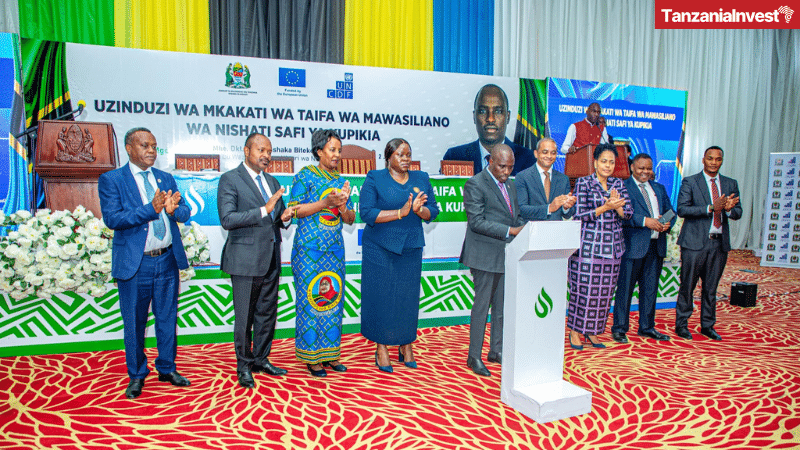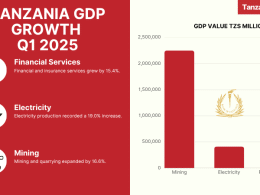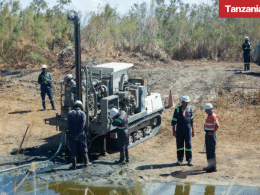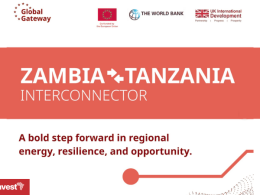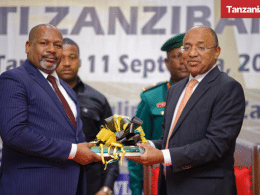On 2nd June 2025, Tanzania launched a TZS 130 billion National Clean Cooking Communication Strategy alongside a nationwide awareness campaign in Dodoma, aiming to ensure that 80% of Tanzanians adopt clean cooking energy by 2034.
Launching the strategy, Tanzania’s Deputy Prime Minister and Minister of Energy, Dr. Doto Biteko, emphasized that the strategy must be implemented at all levels of government, including the private sector, development partners, and the media.
He noted that since the launch of the National Clean Cooking Energy Strategy (2024–2034) on 8th May 2024, the use of clean cooking energy in Tanzania has increased from 6% to 16%.
Dr. Biteko cited global data showing that 2.1 billion people—24.7% of the global population—lack access to clean cooking energy, with 990 million, or 47.1% of them, residing in Africa.
He warned that the use of unsafe cooking energy continues to negatively impact the health of many users, especially women and children under five.
Dr. Biteko stated that: “To demonstrate the seriousness of this agenda, President Samia also established the Clean Cooking Energy Unit within the Ministry of Energy to oversee project development, supervision, and implementation of national education and awareness campaigns.”
He stressed the need for every institution in Tanzania to play its role in achieving the national goal and urged stakeholders to design targeted campaigns that raise public awareness, promote affordable financing options, and ensure effective communication reaches all communities.
He further directed the Ministry of Energy, through its monitoring and evaluation unit, to conduct quarterly assessments to track the implementation progress of the National Clean Cooking Energy Strategy.
On her part, the Dodoma Regional Commissioner, Rosemary Senyamule, stated that clean cooking energy is a priority in the region.
She cited ongoing initiatives such as the adoption of clean energy in nine prisons, three VETA colleges, and nine boarding schools across Dodoma.
Tanzania’s Deputy Minister of Energy, Judith Kapinga, noted that over the past four years, clean cooking energy has become a central focus of the energy sector, with President Samia’s leadership helping the agenda gain recognition both domestically and internationally.
She added that the newly launched communication strategy will accelerate clean cooking programs and facilitate a transition from unsafe to safe cooking energy solutions.
On his part, the Permanent Secretary of Tanzania’s Ministry of Energy, Eng. Felchesmi Mramba described the launch as a significant milestone in implementing the National Clean Cooking Energy Strategy.
He explained that the communication strategy was developed in collaboration with the United Nations Capital Development Fund (UNCDF), with support from the European Union (EU) under the theme “Clean Cooking Energy: Save Lives and the Environment.”
Mramba highlighted that the main goal of the strategy is to increase awareness among citizens and institutions about the importance of clean cooking energy and to implement focused campaigns, deliver consistent messaging to stakeholders, and strengthen communication channels.
The Head of Resources at the European Union, Lamine Diallo, applauded the Ministry of Energy for the launch and noted that it reflects Tanzania’s tangible commitment to improving citizens’ lives through clean cooking energy.
Tanzania’s National Clean Cooking Strategy
Tanzania’s National Clean Cooking Strategy (2024–2034) provides a clear framework to scale up the adoption of clean cooking solutions in Tanzania.
Its main objective is to reduce dependency on biomass and increase the use of clean energy for cooking across households, institutions, and commercial users.
The strategy sets a national target to achieve 80% access to clean cooking by 2034 through a phased, inclusive, and well-coordinated approach.
It will be implemented through enabling policies, awareness campaigns, financing mechanisms, innovation, and strong partnerships among public, private, and development actors.





